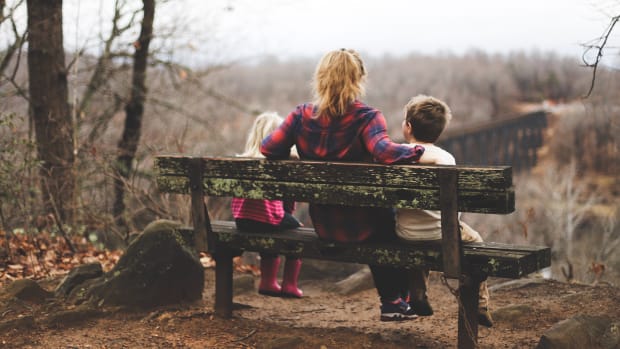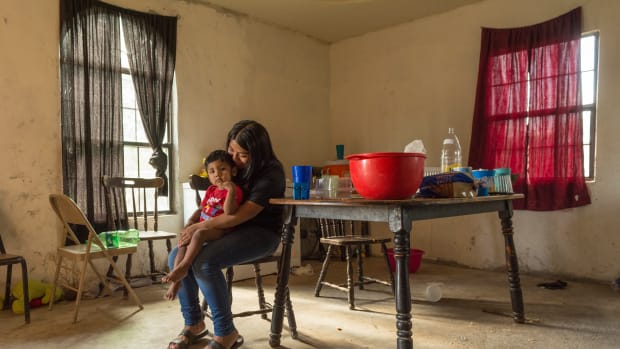'Every Story Has a Function': An Interview With Jennifer Fox
Jennifer Fox has established an impressive reputation for herself as a documentary filmmaker, but her most recent project, the 2018 feature film The Tale, took her in an entirely new direction. The Tale is a powerful examination of the complications arising from the experience of child sexual abuse, and it's based on Fox's own experience of being sexually abused by an older sports coach when she was only 13 years old. (Compounding the abuse, Fox took horse-riding lessons from the coach's female lover, who also procured him young girls.) The film debuted at the Sundance Film Festival before premiering on HBO this past May. At the Emmys this week, Laura Dern, the film's lead actress, was nominated for her portrayal of Jennifer Fox, and the film was nominated for Outstanding Television Movie.
Unlike stories of "recovered memory," Fox's story is one of reexamining events she'd remembered all her life until the moment, at age 45, when she was able to understand them not as a case of puppy love but as an instance of shattering betrayal and abuse that has shaped her life in ways she's still only beginning to understand.
Fox spoke by phone with Pacific Standard during what she describes as a long-overdue vacation on the Greek island of Rhodes. She says she plans to continue producing dramatic films based on true stories. "I think there's so much more I can do with fiction filmmaking than I was able to do with documentary," she says.
In The Tale, this line jumped out at me: The adult Jennifer says: "We tell ourselves stories in order to live. So what's your story? What story are you going to tell?"
Sometimes people tell themselves horror stories that were actually livable, and other times, as in my case, they tell love stories that were unlivable. Both have a function. Sometimes the horror stories people tell themselves turn them into the victim they want to be. I don't say that lightly, however, because there are people who have lived horror stories and they should tell themselves horror stories. But sometimes people make themselves victims when they're not, and sometimes they make themselves heroes when they're not, like I did. Every story has a function.
You describe how this story isn't about a recovered memory; it's about something that you've remembered your entire life, but you're now interpreting it through a grown woman's eyes rather than a 13-year-old girl's eyes. It's the same story, but told to yourself in a different way.
That is really the truth. The film also is very much about the power of denial. I personally don't think denial is a bad thing because I think it's what saves us from madness sometimes. Denial was a really positive thing for me. It's almost like I had to grow up, and to a surprisingly old point: I was 45 before I ever used the words sexual abuse.
For me that's shocking because here I am this filmmaker who goes out into the field and deals with very difficult subjects, who thinks I am someone who believes in seeing the truth, and I was in complete denial, for 32 years, of a part of what happened to me. And even then, 45 was only the beginning.
I have a good friend who is a therapist in Boston, and he talks a lot about how dissociation is a normal reaction to trauma, and that reintegrating ourselves is what leads to healing and wholeness.
I totally agree, and I clearly have a strong dissociative power. As I see myself as a young girl in the film, I see there were parts of me that had to be cut off because I was so wounded I could only just basically throw that part of me over my shoulder and go on. It's like carrying a sack, like, "OK, we have to go forward."
It was such a huge trauma, but this is all at a very unconscious level. I wasn't consciously traumatized. I need to make that very clear. I didn't perceive that I was wounded. I couldn't allow myself to pursue that. Even as I knew things had been taken from me, and I knew that I would have to work to go forward, it still seemed like what I got from those relationships was bigger than what I lost. Which is the perspective of a teenager: I was special. I was loved. I was adored. I was seen by extraordinarily powerful adults as being important. So the loss seemed so much less than the gain.
What I didn't have was experience. So I had no way to evaluate the price of the event. I thought back then that I was making this clear trade: I give you this thing, sexuality, if you give me love. And even as the sexuality is so revolting, the love is worth the price.
That can be a common theme among people who have experienced sexual abuse in childhood. From what you just described, it seems the love and acceptance and affirmation had more value to you than the sexuality per se.
At a very young age, girls and boys learn that the only way to get what we want is to become the way adults want us to be. We're taught the art of the trade. I'll be "good," and if I'm good according to what mom and dad want, then I'll get what I want, which is a truck, a dog, a lollipop, a stuffed animal, whatever. We're conditioned that way so profoundly that when our sexuality is growing as adolescents, when we meet perpetrators, it's not a very far row to hoe to think, "I will give you sex if you give me love and attention."
Then—as with the real Bill in my case, when he eventually sets up a sexual situation for me—it was a matter of thinking, "If I do that he'll love me and give me attention." That was not something I was not used to. It's not that I had been sexually abused, but I was used to every other kind of trade, so how is this different?
Did you find that you had to forgive yourself as an adult when you came to understand what went on at age 13? If you did forgive yourself, was that part of the healing process?
At every turn you go around in trauma, there is healing. But it's like a scar. You'll always have some kind of scar, for better and worse. Obviously for worse, there's damage. But also the scar is what makes you who you are, gives you the compassion you have, helps you understand the world in the way you do.
I have made many steps and certainly understand my 13-year-old self better. In writing and turning it into a film, it has been exciting to find out that, oh, she was a real person, she's not just the road I drove on to get somewhere. That 13-year-old existed, had thoughts and feelings. The piece that I still have yet to process is the betrayal and the reverberations of that in my psyche.
This interview has been edited for length and clarity.








